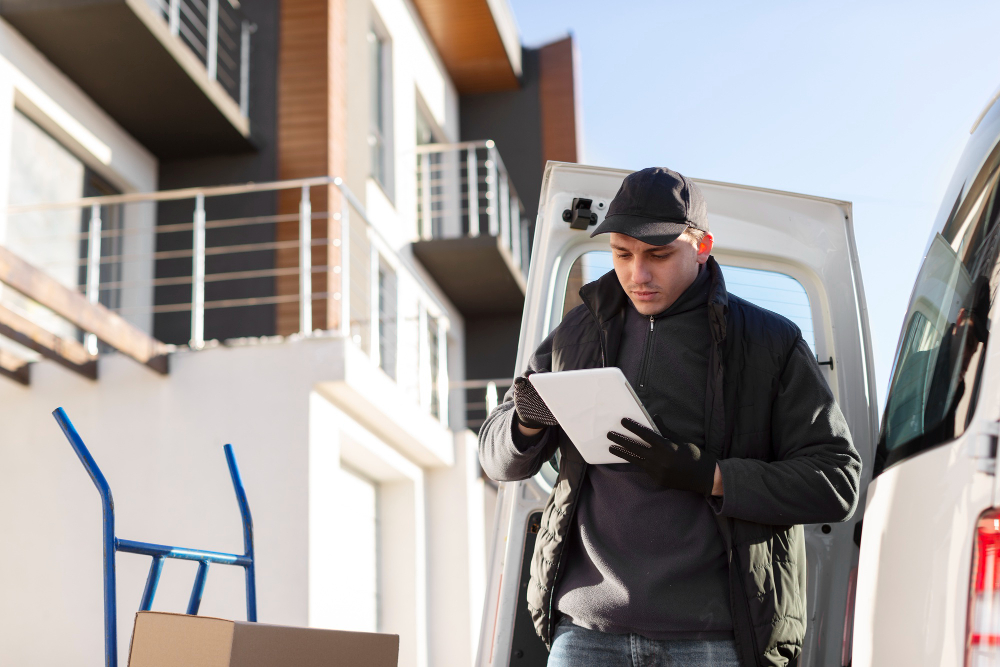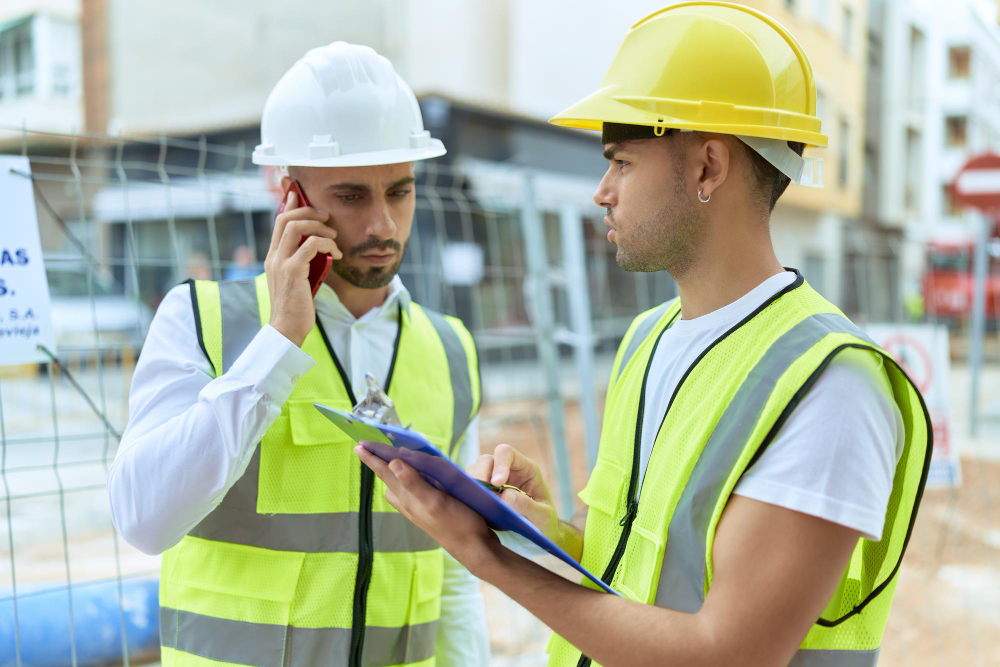Logistics security plays a critical role in keeping supply chains efficient, reliable, and protected from threats. As businesses move goods across warehouses, distribution centers, truck yards, and transportation routes, the risk of theft, vandalism, pilferage, and unauthorized access increases significantly. This is why trained logistics security guards have become an essential layer of protection for modern supply chain operations.
Professional security officers provide on-ground vigilance, enforce safety protocols, and ensure that every point in the logistics chain remains secure. Unlike security systems alone, security guards offer real-time decision-making, physical deterrence, and immediate response, which are crucial for high-value cargo and fast-moving distribution environments.
Why Logistics Security Matters
The logistics industry faces unique security challenges due to the constant movement of goods and people. Theft incidents, insider threats, misplaced inventory, and unauthorized access can result in huge financial losses and operational delays. Businesses must safeguard loading docks, receiving areas, truck yards, and storage zones — all of which require consistent monitoring.
Security guards significantly reduce risks by controlling entry points, verifying identities, conducting patrols, and monitoring high-traffic areas. Their presence alone can deter criminal activity and prevent unauthorized individuals from approaching restricted zones.
Role of Security Guards in Logistics Security
1. Access Control & Entry Management
Security guards at logistics facilities ensure that only authorized staff, drivers, vendors, and visitors can enter the premises. They verify ID badges, log vehicle information, and monitor gate operations. This helps maintain strict control over who enters and exits the property.
2. Cargo & Asset Protection
Guards monitor the movement of goods from loading to dispatch. They supervise loading docks, check seals on trailers, and help prevent tampering, theft, and misplacement of inventory. Their vigilance ensures that cargo remains protected at every stage.
3. Patrols & Surveillance
Security officers perform frequent patrols across warehouses, truck yards, parking lots, and external perimeters. This physical presence helps detect suspicious behavior early and ensures no blind spots in the facility remain unmonitored.
4. Incident Response & Reporting
In the event of a security breach, guards respond immediately to control the situation. They document incidents, notify supervisors, and assist management in preventing similar events in the future. Quick action minimizes downtime and protects business continuity.
5. Protection Against Insider Threats
Internal theft remains a major risk in the logistics sector. Security guards help reduce internal misconduct by monitoring staff activities, regulating restricted areas, and ensuring compliance with company policies.
Benefits of Hiring Security Guards for Logistics Operations
Reduced Theft & Loss
With professional guards on-site, the chances of cargo theft, vandalism, and unauthorized removal of goods drop dramatically.
Improved Operational Efficiency
Guards support smooth flow of vehicles, verify documentation, and help manage daily security processes — allowing operations teams to work without interruptions.
Safer Working Environment
A secure environment promotes safety and confidence among employees, drivers, and suppliers.
24/7 Monitoring & Real-Time Protection
Unlike systems that only record evidence, guards offer immediate action to stop threats before damage occurs.
Compliance With Industry Standards
Many logistics facilities are required to maintain strict security protocols. Professional guards ensure these requirements are consistently met.
Conclusion
Logistics security is a vital component of modern supply chain operations. By deploying trained and reliable security guards, businesses can ensure safe movement of goods, prevent losses, and maintain uninterrupted operations. Whether it’s a warehouse, distribution center, delivery hub, or truck yard, security guards provide the hands-on protection needed to secure every step of the logistics chain.
If your business handles valuable cargo or manages complex logistics operations, investing in professional security guard services is essential for long-term success and peace of mind.
FAQs
1. What is logistics security?
Logistics security refers to the protection of goods, facilities, vehicles, and personnel throughout the supply chain. In many cases, it involves trained security guards who monitor warehouses, truck yards, loading docks, and transportation routes to prevent theft, tampering, and unauthorized access.
2. Why do logistics operations need security guards?
Security guards provide real-time protection, unlike systems that only record footage. Their presence helps deter theft, monitor cargo movement, manage entry points, and respond immediately to incidents. This makes them essential for high-value and high-volume supply chain environments.
3. How do security guards protect warehouses and distribution centers?
They conduct patrols, supervise loading docks, manage access control, verify IDs, inspect vehicles, check cargo seals, and monitor surveillance feeds. Their active presence prevents both external threats and insider risks.
4. Can security guards help reduce cargo theft?
Yes. Cargo theft is one of the biggest risks in logistics, and security guards significantly reduce this by guarding loading areas, observing staff activity, and watching over trailer movements. Their trained awareness helps stop suspicious actions before they escalate.
5. Do security guards handle access control for logistics facilities?
Absolutely. Guards at entry gates log incoming and outgoing vehicles, verify drivers, issue visitor passes, and ensure that only authorized personnel enter sensitive areas like warehouses and storage zones.
6. Do logistics companies need 24/7 on-site security?
Most logistics operations benefit from 24/7 guarding because goods are often stored overnight and trucks move at irregular hours. Continuous monitoring ensures uninterrupted security and prevents after-hours intrusions.
7. How do guards help prevent insider theft?
Security officers monitor employee activity, enforce restricted-area rules, and perform random checks. Their presence discourages misconduct and ensures compliance with company policies.
8. What types of logistics sites require security guards?
Security guards are needed at:
- Warehouses and distribution centers
- Truck yards and parking lots
- Cold chain facilities
- Retail and wholesale storage units
- Shipping receiving zones
- Inventory storage rooms
Any site handling valuable or high-volume goods benefits from on-ground security.
9. Are security guards trained for fast response?
Yes. Professional logistics security guards are trained to respond quickly to emergencies such as theft attempts, unauthorized access, equipment tampering, or safety hazards. Their ability to act instantly prevents larger losses.
10. How can security guards improve supply chain efficiency
By managing gates, helping organize vehicle flow, monitoring loading operations, and reducing disruptions caused by security issues. This leads to faster operations, smoother coordination, and fewer delays.
11. Do guards work alongside surveillance systems?
Yes. Security guards enhance CCTV and alarm systems by monitoring feeds, investigating alerts, and performing physical checks. This combination offers stronger protection than technology alone.





